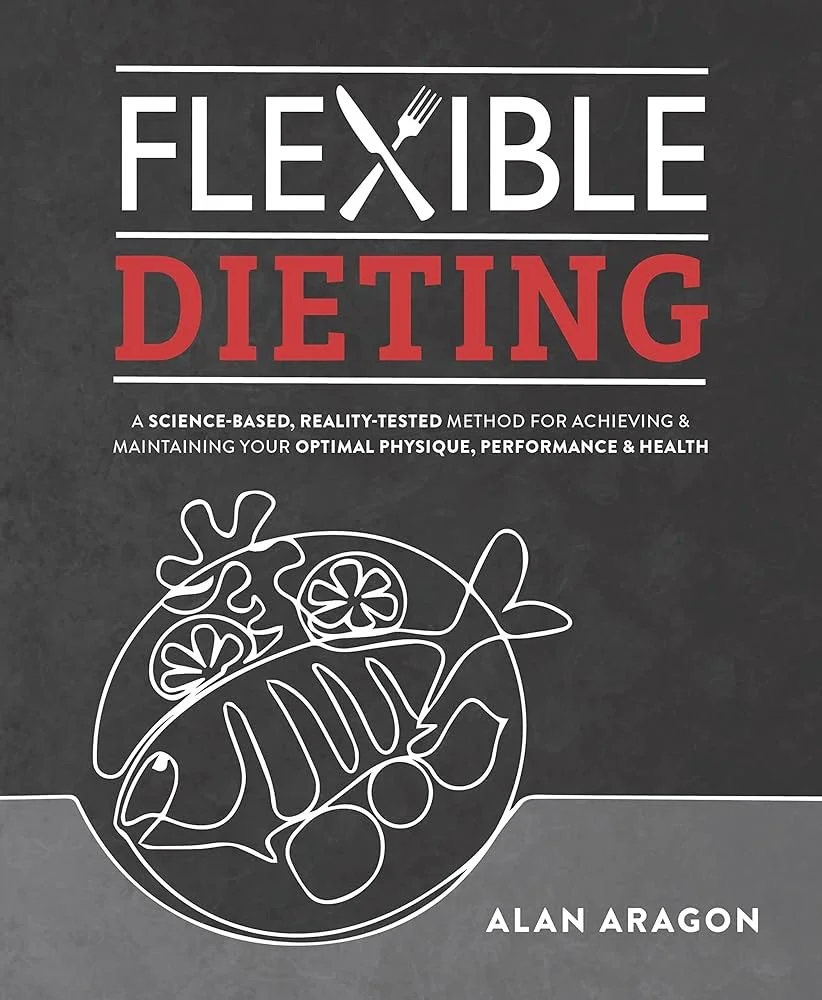Flexible Dieting by Alan Aragon
Introduction
Alan Aragon has been a pretty big name in the nutrition space for a while. I remember reading his meta analysis on protein timing in 2018, and since that time he has become an even bigger name.The order of the book is as follows, fundamentals of understanding research, then talked about the macro nutrients and then he finished the book giving a case study of a potential client. I think the most brilliant part of the book was actually his chapter on adherence, which is the most important thing, as Stan Efferding says “compliance is the science”.
Principles of Research:
I thought this section was super helpful and set the precedent for the rest of the book. For the average person, I believe this section is super helpful in helping explain the hierarchy of science and how to interpret research. He had an awesome pyramid on the hierarchy of research. It goes as follows: anecdotes and non-peer reviewed media, Observational studies (epidemiological studies), randomized control studies, and finally system reviews/meta analysis of randomized control trials. What I love about this section is that he explains that observational research, which makes up most nutrition research, can’t actually prove anything because correlation does not equal causation.
Macronutrients:
I really liked how he structured these sections (protein, carbs, and fats). For all three of them, he talked about recommended intakes before/during/after workouts. He also talked about their roles in muscle gain and fat loss, and then covered some controversial subjects on all three. I don’t want to give away all the information (read his book, I recommend it), but some of the major takeaways are, protein timing probably does not matter (total protein during the day matters most), carb timing does not really matter for resistance training (but does matter for endurance training) and eggs and red meat don’t seem to cause any major health complications (it’s a trend among all the books I have been reading recently. One thing I was interested in was carbs and hypertrophy. Unfortunately there is not really much research on carb intake and muscle hypertrophy, a range of 3-8 g/kg seems ideal, but that’s a big window, that could be anywhere between 240-640g of carbs daily for me.
Working with a Client:
I really enjoyed reading this section as all I do 7 days a week is work with clients, but I only have my methods and never really had anyone to compare it to. It was cool to see his approach and what he takes into account. The major steps are 1. Setting the goal and time frame 2. Setting the calories 3-5. Setting the macros (one step for each macro). I like his breakdown a lot, and although I have never seen the method he uses to calculate calories, it actually seems to be more accurate so I may use that going forward. I would have liked him to talk about sleep and other contributors in this section, but I guess it is focused on nutrition so can’t be too hard on him for that.
Adherence:
This was my favorite section of the book, and by far the most important as well. I use the word compliance, but adherence actually sounds nicer so maybe i’ll use that going forward. The first dramatic fact he gives is that only 20% of people who lose weight manage to keep it off which the research shows, but it’s always super dramatic everytime I hear it. The other big takeaway is that individuation is perhaps the most important factor in adherence (I completely agree). Some of the major barriers include poor-decision making, socio-cultural forces, economic forces, environmental forces, poor planning, and a sedentary lifestyle. I am not really doing this chapter justice, I highly recommend reading it.
Conclussion:
I highly recommend this book. I honestly can’t say I learned a whole lot of new information, but even with that, I did enjoy how he broke everything down. I think that for most people who don’t want to hire a coach for whatever reason, this book Is a really good place to start to learn how to program and set up a plan for whatever goals you may have (weight loss, gain, athletic performance ect.)
Amazon link Flexible Dieting by Alan Aragon

